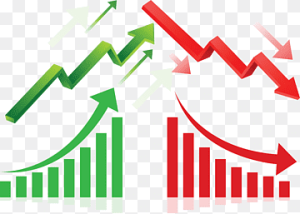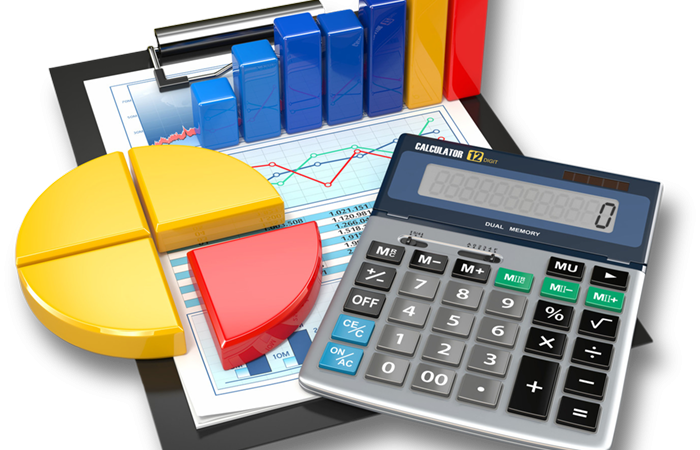The Dynamics and Impact of the Stock Market: An In-Depth Analysis:
Introduction:
The stock market is essential to the global financial system and is frequently used as a gauge of the state of the economy. Investors purchase and sell shares in publicly listed corporations on this vibrant market. The whole economy, individual wealth, and the value of a corporation are all impacted by these financial transactions. We shall delve into the complexities of the stock market in this article, covering its operations, background, and effects on the economy and society.
Understanding the Stock Market:
Although the stock market is a sophisticated and multidimensional system, its main function is rather simple: it gives investors a place to purchase and sell ownership shares, which enables businesses to obtain funds. Among the essential components of the stock market are:
- Stock Exchanges: Exchanges that deal in stocks are the main venues for trading. The London Stock Exchange in the United Kingdom, the Tokyo Stock Exchange in Japan, and the New York Stock Exchange (NYSE) and Nasdaq in the United States are a few examples.
- Stocks and Shares: A corporation issues shares of stock when it chooses to go public. These shares signify a portion of the business’s ownership. These shares can be bought by investors, allowing them to become business shareholders.
- Market Participants: Individual investors, traders, market makers, and institutional investors (including mutual funds and pension funds) are examples of market participants. These organizations purchase and sell shares in accordance with their investing philosophies and plans.
The Historical Context:
Stock markets have existed for millennia. Formalized trading began in 1602, when the Amsterdam Stock Exchange was founded. It was the first stock exchange ever documented. Stock markets have changed dramatically since then. Among the most recognizable and significant exchanges in the world is the New York Stock Exchange, which was established in 1792. Stock markets have had their fair share of booms, crashes, and revolutionary shifts throughout history.
A pivotal moment in the history of the stock market was the Great Crash of 1929, which set the stage for the Great Depression. A speculative bubble, excessive margin trading, and a sharp decline in investor confidence preceded the disaster. It caused a serious economic downturn, illustrating the enormous influence the stock market can have on the overall state of the economy.

The Role and Impact of the Stock Market:
The stock market performs a number of vital roles in the contemporary financial system in addition to being a venue for trading and investing:
- Capital Formation: Businesses sell investors shares in initial public offerings (IPOs) to raise money. These grants allow businesses to develop, innovate, and add employment, which propels the economy.
- Liquidity: Because of the liquidity offered by the stock market, investors may purchase and sell shares with ease. Market efficiency is enhanced by this liquidity, which guarantees that investors may turn their capital into cash fast.
- Price Discovery: The market’s supply and demand dynamics affect stock prices. Because investors’ opinions of a company’s value are reflected in this price discovery mechanism, the stock market is a useful economic indicator.
- Wealth Creation: The stock market is an opportunity for individual investors to create wealth through dividends and capital gains. It is the main tool for creating lasting financial stability.
- Corporate Governance: Better corporate governance and accountability are encouraged by the heightened scrutiny and transparency requirements placed on publicly listed corporations.
The influence of the stock market is not without its difficulties and dangers, though. Crashing, bubble bursts, and market volatility can cause economic instability and harm to individual investors. Lehman Brothers’ demise set off the 2008 financial crisis, which serves as a current illustration of how the market may have a detrimental impact on the world economy.
Social and Economic Impact:
The influence of the stock market goes beyond financial dealings and macroeconomic data. It has an impact on a number of societal and economic factors, such as:
- Retirement Savings: For financial security, a lot of people rely on stock market investments, sometimes made through retirement plans like 401(k)s. Retirement planning and savings may be directly impacted by stock market performance.
- Wealth Distribution: Income disparity may be made worse by the stock market. Market expansion often benefits individuals with substantial investments, but others without access to capital may not experience the same level of success.
- Job Creation: Increased job prospects and economic success can result from a healthy stock market, which in turn stimulates economic growth.


Conclusion:
The state of the economy and personal wealth are closely linked to the stock market, which is a dynamic and complicated phenomenon. The Great Crash of 1929 and the Amsterdam Stock Exchange provide historical background for its significant effects on the economy and society. The stock market continues to be a vital component of the global financial system as a source of capital generation, liquidity, and price discovery.
However, as previous market crises have shown, there are hazards associated with its power. The growing reliance of society on the stock market to generate wealth and save for retirement highlights the significance of comprehending its workings, consequences, and possible weaknesses. To maintain the stock market’s long-term stability and the general welfare of society, investors, regulators, and legislators must so closely watch and oversee it.



